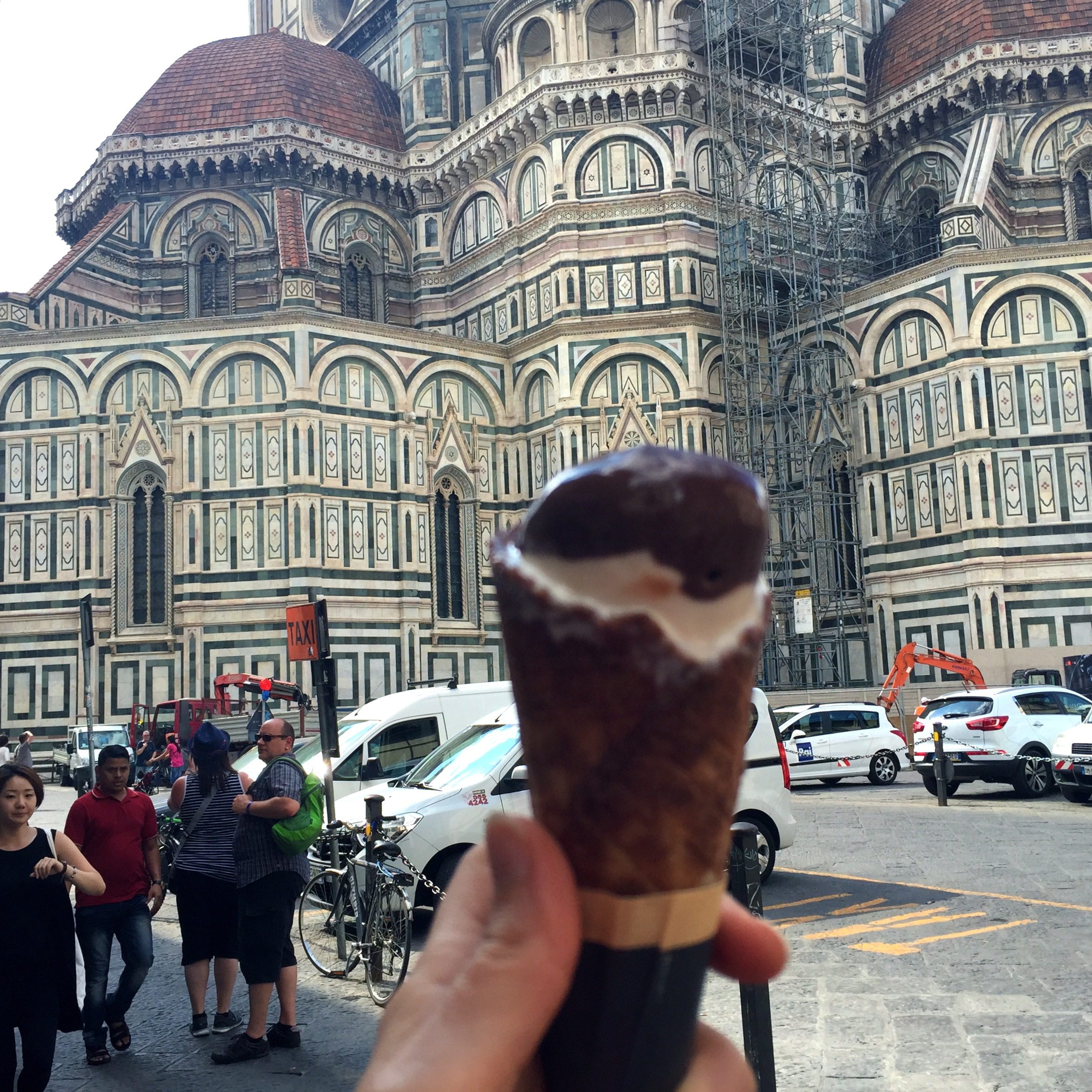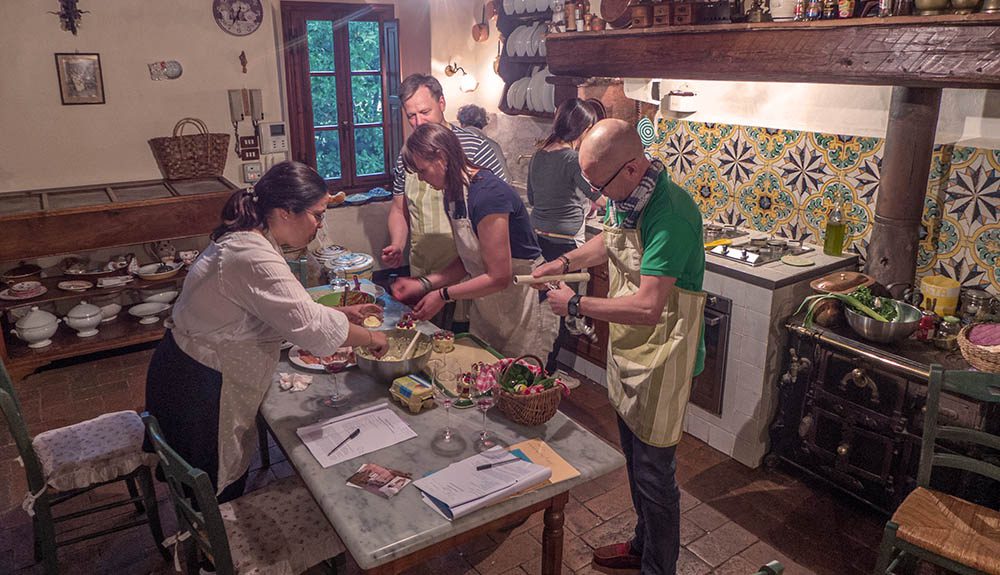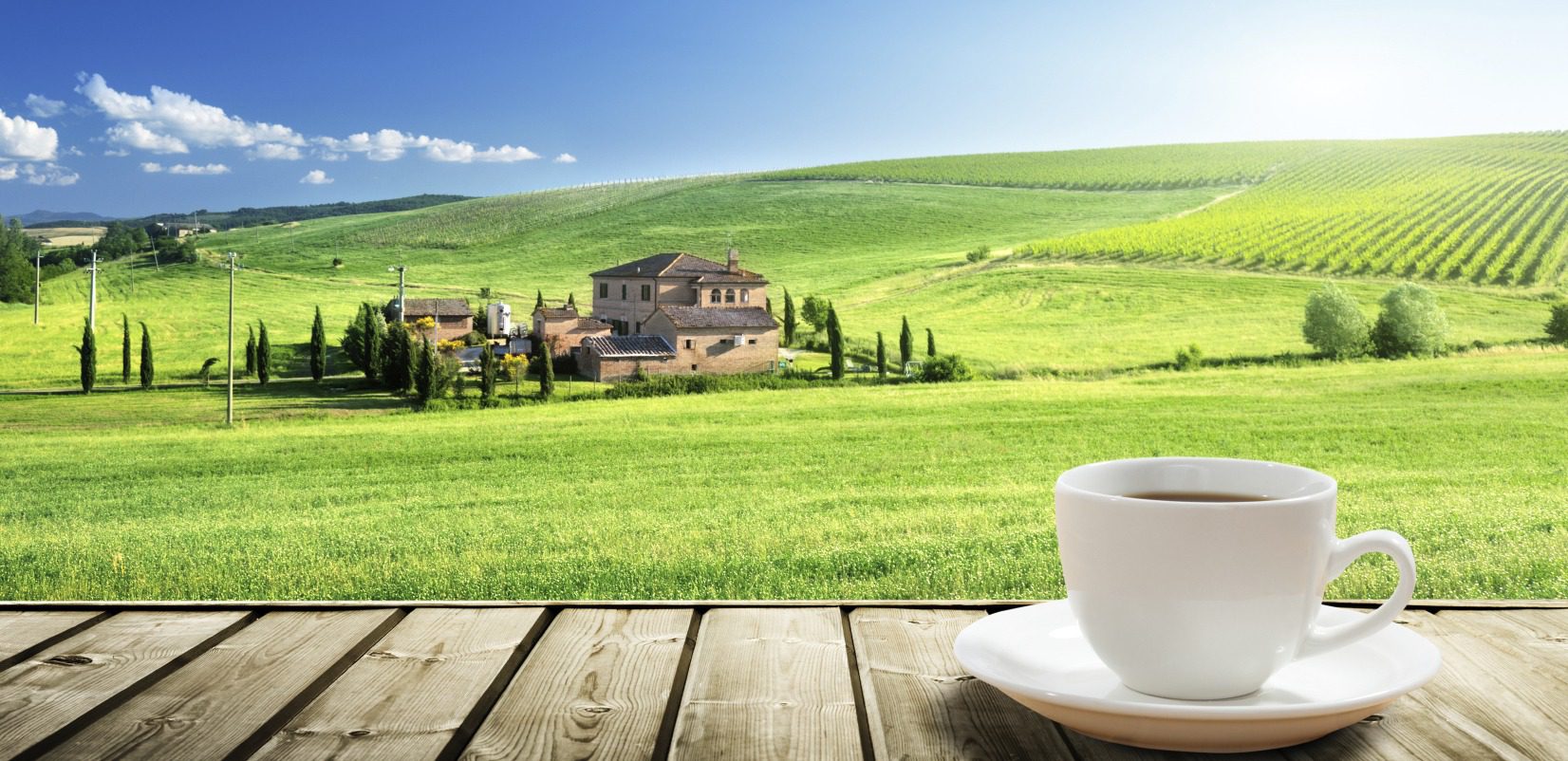
For many foodies olive oil isn’t just an ingredient, it’s a ritual. Which makes a lot of sense, as the notion of ritual is visible in every facet of a fresh Italian olive oil’s creation. All over Italy it is produced in largely the same way now that it was thousands of years ago with a process called first cold-pressing.
Before we get to the first cold-pressing process, it’s important to discuss what makes extra virgin olive so special: purity. In fact, less than 10% produced each year qualifies. Extra virgin means that the oil is extracted from the olives without using heat or chemicals. Usually this means that it is extracted when the olives are crushed or pressed at room temperature. Any taste or odor defects that happen in the process will lead to the oil being labeled as virgin, rather than extra virgin. That’s why first cold-pressing is such a valued process, it takes longer and requires more work, but you get purer oil out of it.
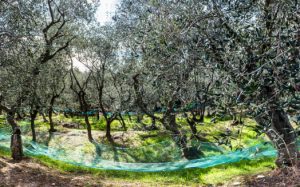 With purity in mind, olives should be picked less than 24 hours before pressing to avoid over-ripening. The harvesting is done by hand with nets that are spread around the tree. Before the pressing begins all the olives have to be checked for any bruised or damaged areas. Blemishes are removed to retain a high quality produce. Once all leaves and twigs are removed and the olives are rinsed in cold water they are ready to be ground into a paste. In Tuscany this is usually done using a traditional grindstone. After that the paste is stirred in a tub called a gramolatrice to help break up the water and oil, which will ease the extraction.
With purity in mind, olives should be picked less than 24 hours before pressing to avoid over-ripening. The harvesting is done by hand with nets that are spread around the tree. Before the pressing begins all the olives have to be checked for any bruised or damaged areas. Blemishes are removed to retain a high quality produce. Once all leaves and twigs are removed and the olives are rinsed in cold water they are ready to be ground into a paste. In Tuscany this is usually done using a traditional grindstone. After that the paste is stirred in a tub called a gramolatrice to help break up the water and oil, which will ease the extraction.
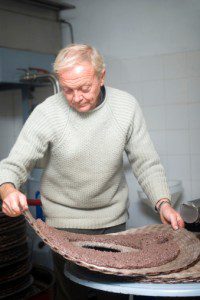 Next the paste is formed into round pads called Fiscoli, which are stacked in the press (separated by steel plates). The press then crushes the Fiscolis and oil will begin to drip out the sides, being gathered in a trough at the base. The oil is put through settling tanks to remove any solid matter and then centrifuged to remove any water and then all that is left is the purest of olive oil, ready for your enjoyment.
Next the paste is formed into round pads called Fiscoli, which are stacked in the press (separated by steel plates). The press then crushes the Fiscolis and oil will begin to drip out the sides, being gathered in a trough at the base. The oil is put through settling tanks to remove any solid matter and then centrifuged to remove any water and then all that is left is the purest of olive oil, ready for your enjoyment.
With the mass availability of most food via grocery stores it’s easy to forget how special food can be. By maintaining both the purity and the ritual of the first cold-pressing process the producers of Italian extra virgin olive oil have helped to hold onto what makes it so special.
Since olive oil degrades over time it is best enjoyed fresh. Many of our trips including the Chianti Classic, offer great opportunities to sample the finest first cold-pressed olive oils that Italy has to offer – https://eviactive.com/chianti-classic/.
0

